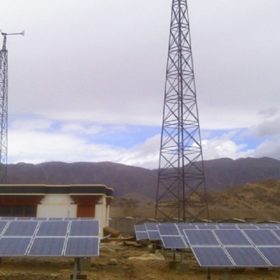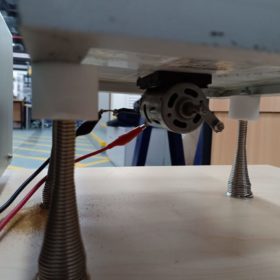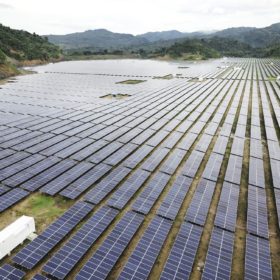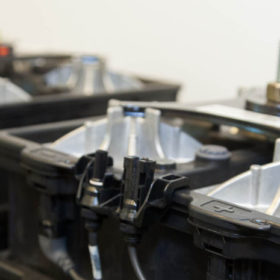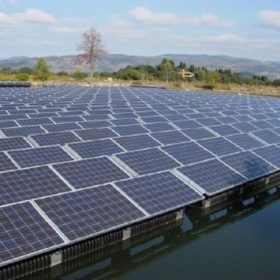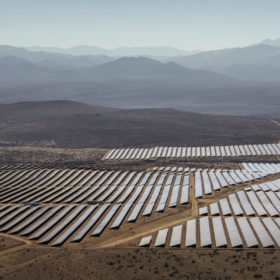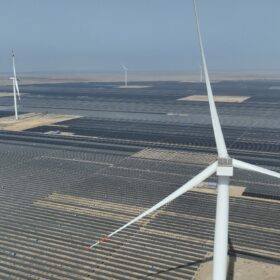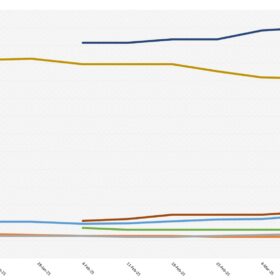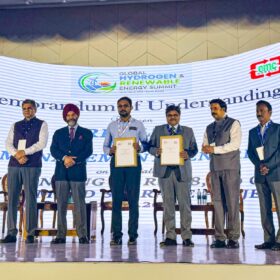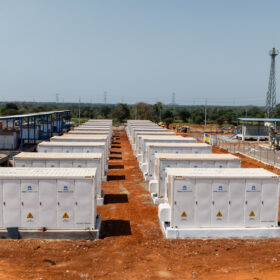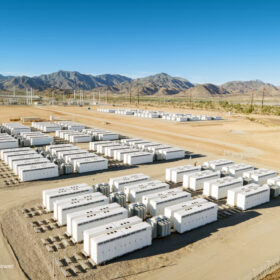MNRE to host Global RE-Invest 2020 digitally
Given Covid-19 spread, India’s ministry has decided to conduct the third Global Renewable Energy Investors Meet and exposition (3rd RE-Invest)—scheduled from October 15 to 17—on a digital platform. The ministry has sought proposals for an interactive IT platform to facilitate the same.
Mega-scale solar farms Vs distributed generation with battery storage
Distributed generation with battery storage can revolutionize solar development in India in the shortest time period with minimal investment.
Vibration tech for self-cleaning solar panels
Scientists in the U.K. have developed a system which makes panels vibrate to provide cleaning. The academics have conceded, however, they are yet to calculate the ‘sweet spot’ of mechanical stress to be applied.
NTPC tenders EPC work for 23 MW solar project in Maharashtra
June 3 is the last date to submit bids for installation and commissioning of the NTPC Solapur solar project tendered under the domestic content requirement category. Major items including modules and inverters for the project shall be provided by NTPC to the EPC contractor.
Covid-19 lockdown: MNRE relaxes commissioning time for solar projects
A blanket extension equivalent to the period of lockdown and additional 30 days for normalisation after the end of the lockdown is allowed for completion of solar projects.
Low-cost bio-inspired electrocatalyst for rechargeable metal-air battery
Indian scientists have developed a low-cost electrocatalyst based on iron, manganese and N-doped carbon derived from fish gills (Fe/Mn/N-FGC) that increased the performance of a homemade rechargeable zinc-air battery when used as the air cathode. The Fe/Mn/N-FGC cathode based battery achieved open-circuit voltage of 1.41 V and a large power density of 220 mW/cm2 at 260 mA/cm2 current density—compared to commercial platinum/carbon based battery’s 1.40 V and 158 mW/cm2—with almost stable charge-discharge voltage plateaus at high current density.
Indian electricity sector structural reforms get underway!
The draft Electricity Bill 2020 moves us with a toolbox of structural reforms, towards not only efficient but also a progressive electricity market.
Solar inverters vs. cyberattacks
A U.S. research group is now developing new inverters to protect solar installations from cyberattacks. The researchers also aim to create new cybersecurity standards. Professor Alan Mantooth, the group’s research coordinator, said that inverters can be shut down if they are hacked, or contribute to grid instability and result in the overcharging of batteries, while potentially creating problems that we still don’t know how to address.
BHEL tenders BOS for NTPC’s 100 MW (AC) floating solar plant
Bids are invited for supply, installation and commissioning of balance-of-system (BOS) items for NTPC’s 100 MW (AC) grid-connected floating solar plant in Telangana. Bidding closes on April 27.
SECI extends deadline for 81 MW SCCL projects
The Solar Energy Corporation of India has extended the bid submission deadline for 34 MW (AC) ground based, 32 MW (AC) over-burden dump based and 15 MW (AC) floating solar plants at Singareni Collieries Company Limited (SCCL) sites in Telangana state.

